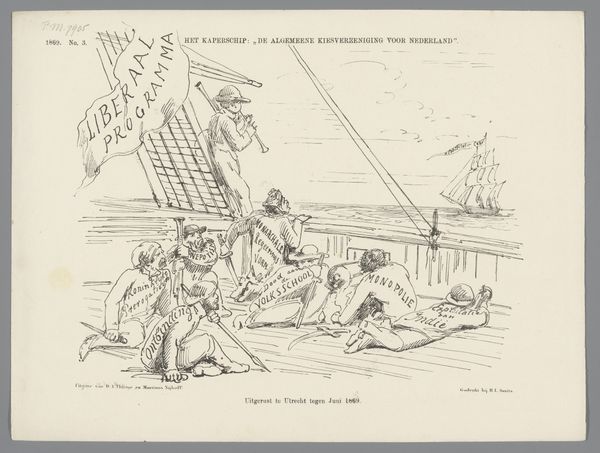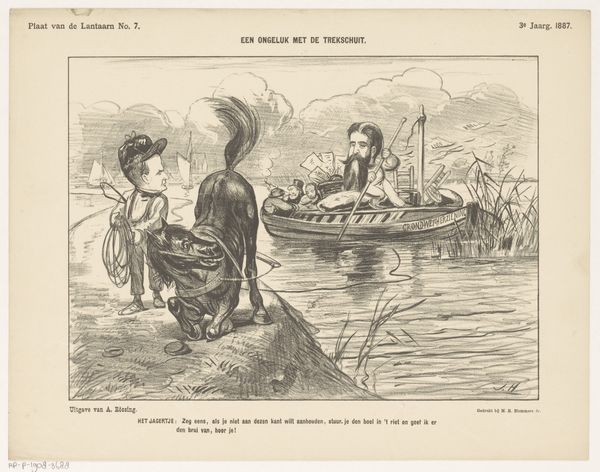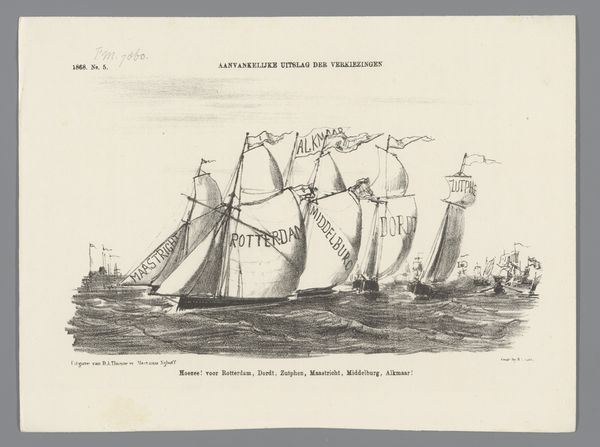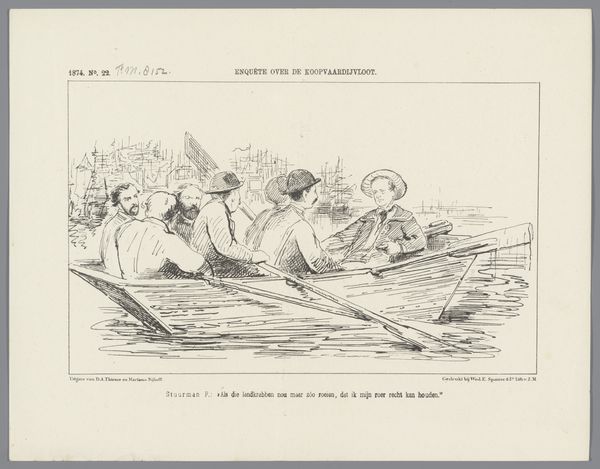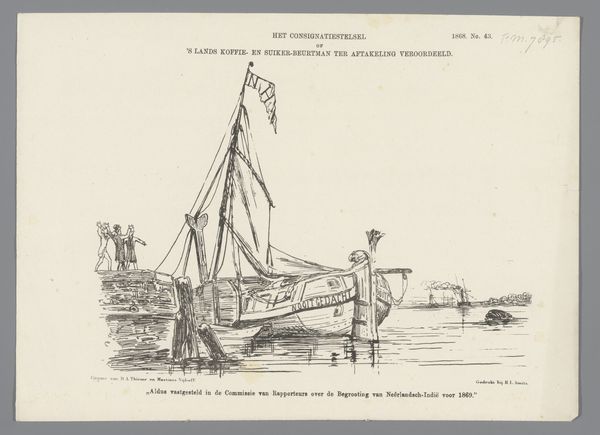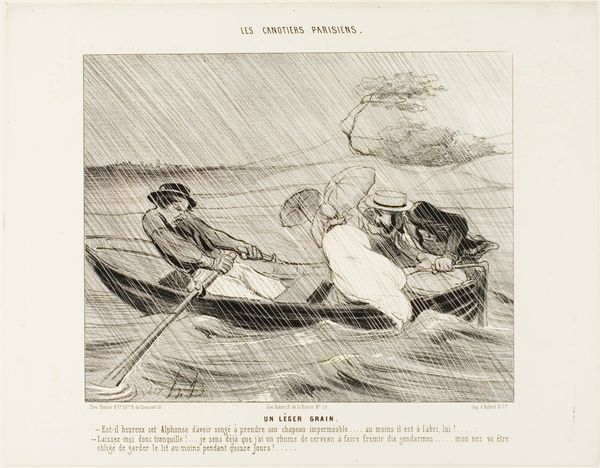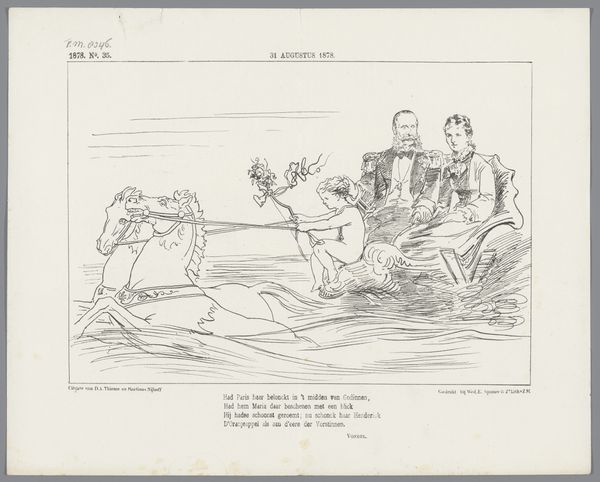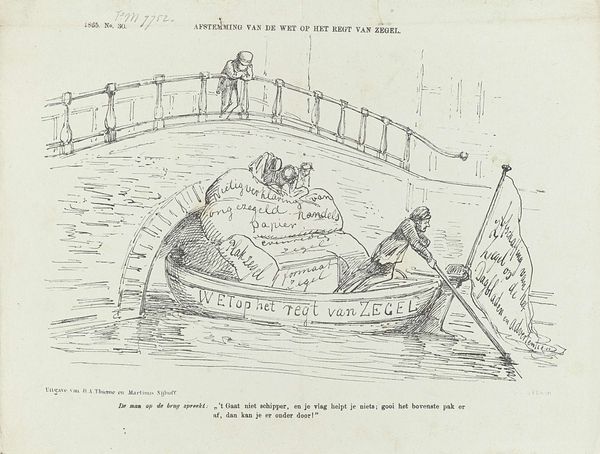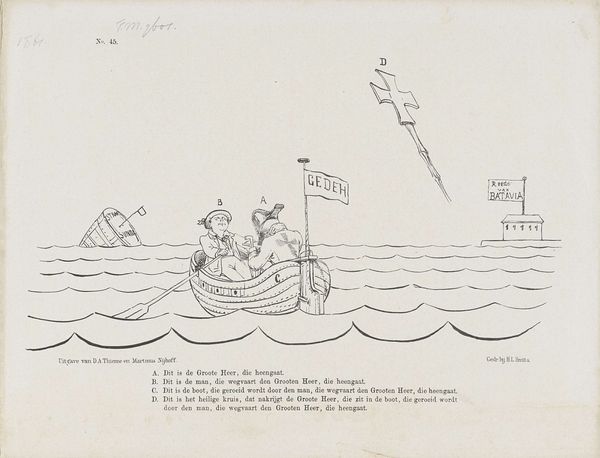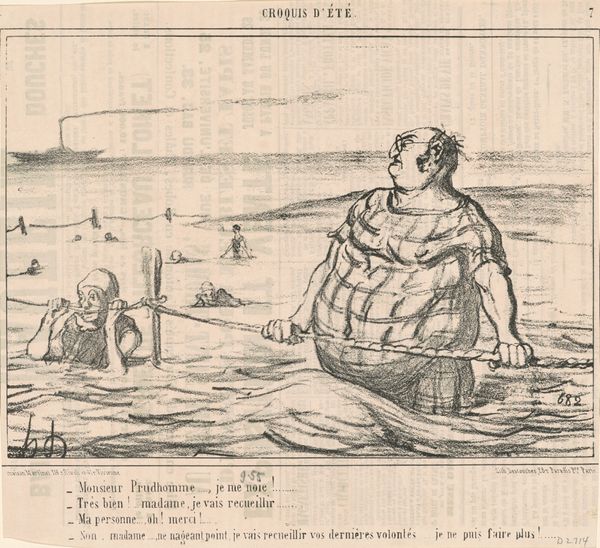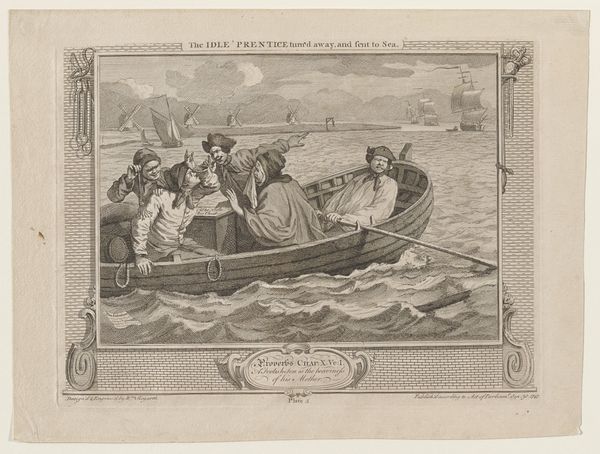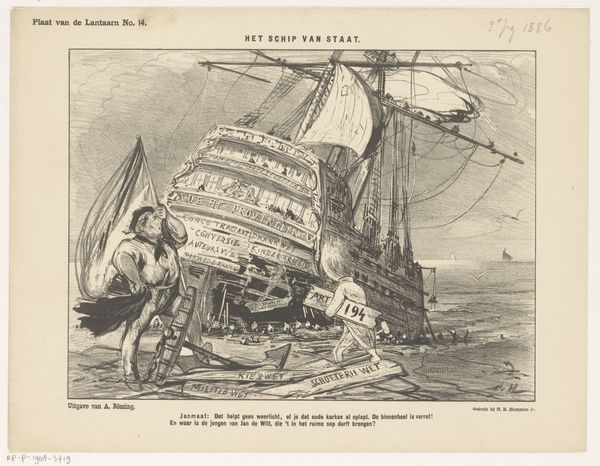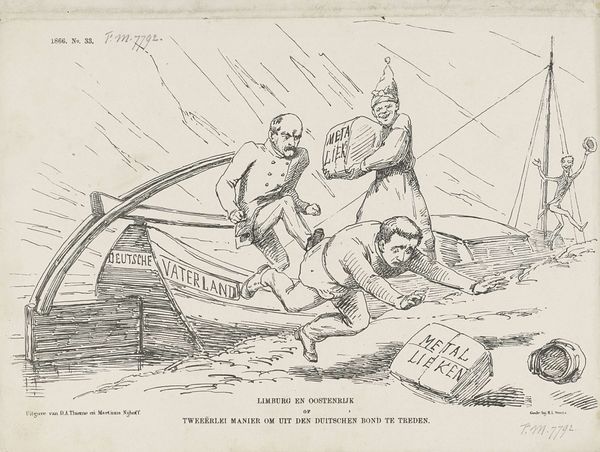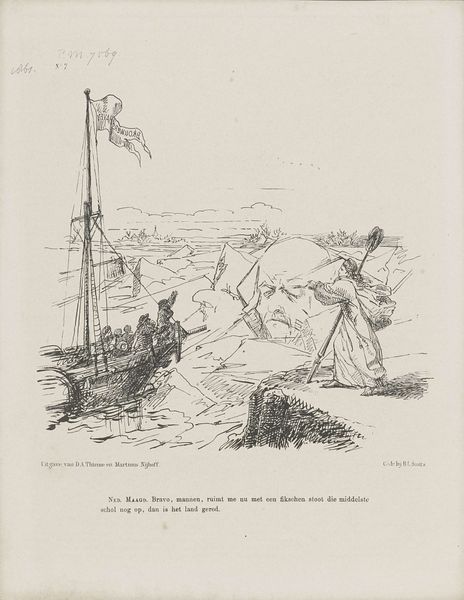
drawing, ink
#
drawing
#
caricature
#
ink
#
history-painting
Dimensions: height 215 mm, width 275 mm
Copyright: Rijks Museum: Open Domain
Curator: Here we have a drawing, rendered in ink, from 1870 by Johan Michaël Schmidt Crans, entitled “Spotprent met minister Roest van Limburg als Jonas, 1870,” which translates roughly to “Caricature of Minister Roest van Limburg as Jonah.” Editor: Immediately, the image strikes me as satirical, almost comically dramatic. There’s a very distressed figure falling from a boat into the jaws of a massive fish. What story is it trying to tell through these striking images? Curator: Well, considering the title, the drawing uses the biblical story of Jonah and the whale to satirize Minister Roest van Limburg's political misfortunes. It appears he was "swallowed" by the Second Chamber – the Dutch House of Representatives – possibly due to some controversial treaty or "salmon treat." Editor: Yes, the fish is prominently labeled "2 Kamer," pointing directly to that political body as the force consuming the minister. The fish-monster as political body is very telling about political culture, then as now. I wonder, beyond the immediate political joke, what symbolism is employed here? What were the typical characteristics, culturally, of political actors being criticized this way at that moment in the Netherlands? Curator: In that era, political cartoons often depicted leaders facing turbulent seas or monstrous opponents, using religious or classical allegories to underscore a narrative of either heroism or failure. This specific cartoon links Roest van Limburg to the archetypal story of Jonah, suggesting his political troubles are both divinely ordained and self-inflicted. This type of symbolic caricature critiqued not just his policies, but his moral and political judgment, reflecting wider discontent with government affairs. Editor: I notice the careful hatching, the frantic expressions of the figures trying to save the minister... It lends a frantic energy, drawing our eyes to the central drama of a man quite literally overboard! And the looming fish as an open-mouthed symbol of governmental hunger. A rather dark comment on political life, no? Curator: Indeed, it offers a fascinating snapshot into how political dissatisfaction can manifest through art. It also illuminates how identity—particularly that of political figures—can be shaped and satirized through symbolic visual language in a public forum. Editor: So while appearing simple at first glance, this ink drawing encapsulates significant socio-political critique and symbolic communication of its time. The choice of medium – ink drawing – might seem unassuming, but really served as an impactful and accessible tool for commentary. Curator: Exactly. Understanding the historical and social climate gives this seemingly straightforward caricature a potent and enduring meaning.
Comments
No comments
Be the first to comment and join the conversation on the ultimate creative platform.
